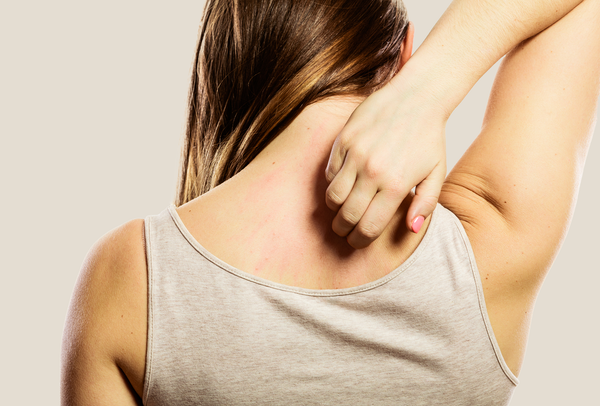Summer isn’t over yet, and hopefully you have a routine in place to protect your scalp and hair while you’re enjoying time outdoors. From UV rays to swimming in the pool or ocean, consider this your guide for keeping your scalp happy and healthy not only just until Labor Day, but for the days, months, and years to come. Here, our founder, Harvard-trained dermatologist Dr. Iris Rubin, answers some of the most common summer scalp questions.
“Do I really need to use scalp sunscreen?”
Scalp sunscreen is important because the scalp is skin, and it’s a good idea especially on days you’re spending a lot of time outdoors. The scalp can experience sunburn despite being covered with hair (especially if it’s fine or thinning), and if you wear your hair with a part, this area of skin is particularly vulnerable.
“What type of scalp sunscreen is best?”
Lotions may provide the best sun protection because they make it easier to get even coverage. Sprays can be very effective for the scalp as well since application is targeted. Powder-based sunscreens are convenient for touch-ups throughout the day, especially along your hair’s part or around the hairline. However, Dr. Rubin does not recommend relying on powder-based products as your primary scalp sun protection since it can be hard to know if you’ve applied enough for adequate coverage.
“Can I use regular sunscreen on my scalp?”
You can apply your usual face or body sunscreen on your scalp, but you may wind up with greasy hair. If you go this route, be sure to look for a sunscreen that is non-comedogenic, since clogged pores can lead to breakouts on the skin and scalp. (If you’re prone to scalp breakouts, make sure all products that come in contact with your scalp and hair are non-comedogenic.)
“Do I really need sun protection for my hair, too?”
If you’re spending an extended period of time outside, yes, because the sun can affect your hair’s health as well. UV rays can cause color to fade, and over time sun exposure can actually damage the hair shafts, leading to dryness and brittleness. Protecting your hair can be as easy as using a specially-formulated styling product. SEEN Blow-Out Creme and Curly Creme contain moringa oleifera (horseradish tree) extract to provide UV and pollution protection for your hair—and these products also offer amazing frizz-reduction, strengthening, smoothing and shine-enhancing benefits as well.
“How often should I wash my hair in the summer?”
There are no strict rules about how often you should wash your hair, as each person’s hair, scalp, and lifestyle is different. Many factors come into play, including how oily your scalp is, your hair type, and if you engage in strenuous exercise that causes you to sweat. SEEN Shampoo is gentle enough for daily use—and it’s safe for sensitive skin and won’t clog pores.
Just remember that during the summer, it’s especially important to rinse your hair with fresh water as soon as possible after swimming in a pool or salt water (no matter how much you love the beachy texture!).
One more thing from Dr. Rubin…
Although it’s important to consider how your haircare products are going to affect your skin year-round, the summer season can pose a few additional challenges. Body acne can flare-up due to extra sweating, as sweat can mix with bacteria on the skin, as well as dead skin cells, to clog pores and contribute to cause breakouts. SEEN’s non-comedogenic haircare won’t clog pores, and can help support skin clarity on the back, shoulders, chest, and face. In a dermatologist-graded acne study, 70% with body acne and 52% with face acne improved by changing to non-medicated SEEN Shampoo and Conditioner for 8 weeks.*
Enjoy the rest of the summer!
*In a dermatologist-graded clinical study, 27 subjects with mild to moderate acne used SEEN Shampoo and Conditioner as a regimen for 8 weeks. SEEN is non-medicated and can help those for whom hair products are contributing to acne.




